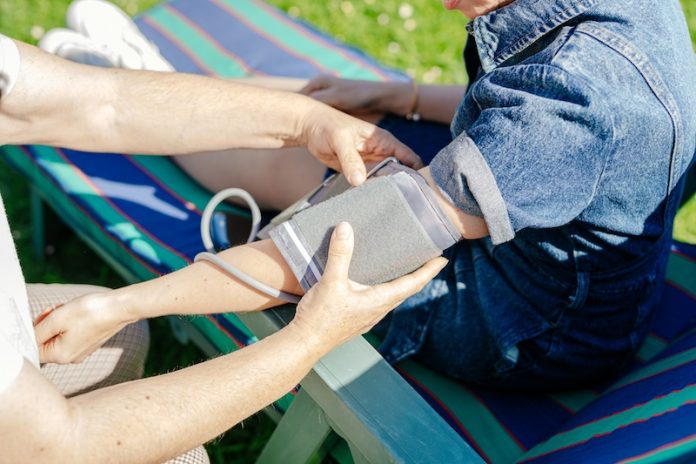
In Australia, high blood pressure, also known as hypertension, affects more than a third of people over the age of 18. If not managed properly, it can lead to serious health problems such as stroke and heart disease.
A recent study from UNSW Sydney has raised concerns about a widely used blood pressure medication called hydrochlorothiazide. This medication, often prescribed to manage high blood pressure, has been linked to an increased risk of skin cancer, especially in older individuals.
Hydrochlorothiazide is a common medication in Australia, but it has properties that can make the skin more sensitive to sunlight.
This increased sensitivity might lead to a higher risk of skin cancer. The study’s findings are based on a detailed analysis of skin cancer rates among older Australians, supporting similar results from previous international studies.
Managing high blood pressure typically involves medications like hydrochlorothiazide, along with lifestyle changes such as a healthier diet and regular exercise. However, the potential link to skin cancer is a cause for concern.
The data used in this research was provided by the Department of Veterans’ Affairs (DVA) in Australia. It included anonymous information on cancer registrations, hospital admissions, and medication use among DVA healthcare cardholders aged 65 and over in New South Wales from 2004 to 2015.
The researchers focused on individuals who used hydrochlorothiazide and were diagnosed with lip cancer (45 cases) or malignant melanoma (659 cases). They compared these cases to a control group of 13,300 people without these diagnoses.
The study discovered that using hydrochlorothiazide was linked to an increased risk of developing malignant melanoma and squamous cell cancer of the lip. Furthermore, the longer hydrochlorothiazide was used, the higher the risk of developing lip cancer.
Despite these findings, the researchers urge people not to panic or stop taking their medication without consulting their doctor. They believe it is important for doctors to be aware of this potential risk.
Doctors might need to conduct more regular skin checks on patients using hydrochlorothiazide or advise them on being more careful in the sun. Precautions could include wearing adequate sun protection when the UV index is high and avoiding sun exposure during peak UV times.
To inform healthcare professionals about this risk, the product information for medicines containing hydrochlorothiazide has been updated.
This ensures that doctors are aware of the potential link between the medication and skin cancer and can take appropriate steps to protect their patients.
For those interested in skin health, there are other studies worth reading. Some studies highlight the top signs of diabetic skin disease, and how taking 3 grams of omega-3s a day could help maintain healthy blood pressure levels.
Additionally, research is exploring how tougher skin could influence the design of stealth aircraft and ways to combat the effects of aging on the skin.
The study, led by Dr. Benjamin Daniels and his team, was published in Basic & Clinical Pharmacology & Toxicology.
It emphasizes the need for a careful balance between effective blood pressure treatment and awareness of potential side effects, such as an increased risk of skin cancer.
If you care about high blood pressure, please read studies about potatoes and high blood pressure, and top 10 choices for a blood pressure-friendly diet
For more information about high blood pressure, please see recent studies about impact of vitamins on high blood pressure you need to know, and the powerful link between high blood pressure and a potassium-rich diet.
Copyright © 2024 Knowridge Science Report. All rights reserved.



